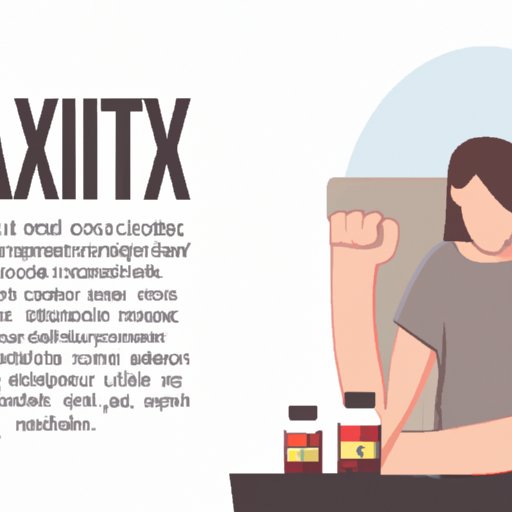
Introduction
Anxiety attacks are a common experience that can happen to anyone, at any time. It’s estimated that more than 40 million adults in the United States suffer from anxiety disorders. When anxiety attacks occur, they can be incredibly distressing and can interfere with your ability to function in daily life. The good news is that there are steps you can take to ease the symptoms and feel better. In this article, we’ll explore the different ways to deal with anxiety attacks and provide you with practical tips and techniques for managing them effectively.
What are Anxiety Attacks?
Anxiety attacks, also known as panic attacks, are sudden and intense feelings of anxiety or fear. They are usually accompanied by physical symptoms such as a rapid heartbeat, sweating, tremors, and difficulty breathing. Anxiety attacks can last from a few minutes to a few hours, and can occur without warning. They can also happen in response to a trigger or stressful situation.
There are different ways in which anxiety attacks can manifest. For some, it may feel like a sudden, overwhelming sense of dread or doom. For others, it may feel like they are having a heart attack or going insane. No matter how it presents itself, anxiety attacks can be frightening and disruptive to your daily life.
Common Triggers of Anxiety Attacks
Anxiety attacks can be triggered by various factors. Some of the most common triggers include sources of stress, social situations, and sleep deprivation.
Sources of stress can include anything from work-related issues to financial problems and relationship difficulties. Social situations that may trigger anxiety attacks can include meeting new people, large gatherings, and public speaking. Sleep deprivation can also contribute to the likelihood of having an anxiety attack, as lack of sleep can negatively impact mental and physical health. Identifying your triggers can be helpful in managing anxiety attacks, as you can take steps to avoid or prepare for situations that may cause an attack.
Relaxation Techniques
Relaxation techniques can be useful in managing anxiety attacks. Some of the most effective techniques include deep breathing exercises, meditation, progressive muscle relaxation techniques, and visualization exercises.
Deep breathing exercises involve taking deep, slow breaths through your nose, holding it for a few seconds, and exhaling slowly through your mouth. Meditation involves focusing on your breath or a mantra and allowing yourself to become more relaxed. Progressive muscle relaxation techniques involve tensing and relaxing different muscle groups in your body. Visualization exercises involve imagining yourself in a calm, peaceful environment.
Practical Steps to Take During an Attack
When an anxiety attack occurs, it’s important to take practical steps to manage the symptoms. It can be helpful to prepare yourself for a potential anxiety attack by carrying a calming object, such as a stress ball or a picture that brings you comfort. Finding a quiet spot can also be beneficial in managing an anxiety attack, as well as focusing on your breathing. It’s helpful to remind yourself that the attack won’t last forever, and to try to ride it out as calmly as possible.
The Benefits of Exercise
Regular exercise can be an effective long-term strategy for managing anxiety attacks. Exercise has been shown to reduce stress and anxiety, release endorphins, and improve overall physical and mental health. Incorporating regular exercise into your routine can contribute to a healthier lifestyle and reduce the likelihood of experiencing an anxiety attack.
Therapy and Medication Options
For some individuals, managing anxiety attacks may require professional help. There are several different types of therapy available, including cognitive-behavioral therapy, exposure therapy, and psychodynamic therapy. Medication can also be useful in managing anxiety attacks, including antidepressants and benzodiazepines. It’s important to consult with a mental health professional to determine the best course of treatment for you.
Conclusion
Dealing with anxiety attacks can be a challenging experience, but there are steps you can take to manage them effectively. Incorporating relaxation techniques, preparing for potential attacks, regular exercise, and seeking professional help if necessary can all contribute to easing the symptoms and managing anxiety attacks. Remember to be kind to yourself, and take care of your mental health just as you would take care of your physical health.
Resources and Further Reading
If you are experiencing anxiety attacks, it’s important to seek professional help. Resources that may be helpful include the Anxiety and Depression Association of America (ADAA), the National Institute of Mental Health (NIMH), and the American Psychological Association (APA).





